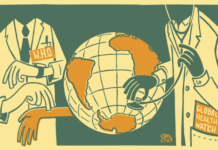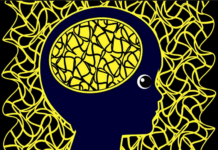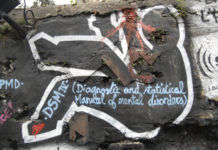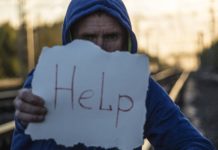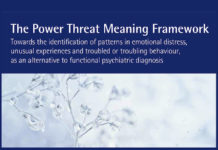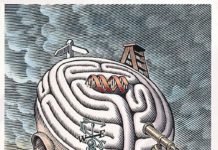Building an Intersectional Psychology of Economic Class
Innovative research methods and interventions could address socioeconomic disparities in academic achievement.
Reimagining Healthcare
The conventional Western classification systems of health conditions are based on flawed science shaped by reductionist, hierarchical, and profit-driven ideologies. THEN wants to create a new paradigm built upon principles drawn from systems science, the life course perspective, developmental neurobiology, and other evidence-informed studies.
School Discipline is Racially Biased and Increases Misbehavior
School discipline that punishes minor misbehavior may increase adolescents’ misconduct and lead to racial inequalities in school discipline.
Psychology and Poverty: An Interview with APA President Rosie Phillips Davis
MIA’s Gavin Crowell-Williamson interviews psychologist Rosie Phillips Davis about her presidential initiative to address deep poverty.
Bringing Structural Competency to Global Mental Health
Structural competency is put forth as a framework that addresses social and structural determinants in global mental health.
How to Change Psychology to Address Racial Health Disparities
Psychology can only deal with racial health disparities effectively by incorporating critical race theory and intervening at a structural level.
Mental Health Professionals and Patients Often Disagree on Causes of Symptoms
A new study finds that clinicians’ disregard for mental health patients’ insight into their own condition may be detrimental to treatment.
Experiences of Depression Connected to Declining Sense of Purpose
In-depth interviews find that those who screened positive for depression did not explain their experience in terms of diagnostic symptoms.
The Invisibles: Children in Foster Care
Millions of current and former foster children experience multiple kinds of trauma, as documented in a six-part investigative series published in the Kansas City Star this month. Too often invisible, these young people deserve our attention and our care.
How Western Psychiatry Harms Alternative Understandings of Mental Health
An anthropological look at the Global Mental Health (GMH) movement suggests several ethical problems and contradictions in its mission.
Young Adult Food Insecurity Linked to Poor Mental Health
A new study identifies significant links between food insecurity and sleep, anxiety, depression, and compromised wellbeing among young people in the United States
Psychotherapy Less Effective for People in Poverty and Those on Antidepressants
A new study finds poorer depression and anxiety outcomes in psychotherapy for people in economically deprived neighborhoods and those on antidepressants.
It is Time for Global Mental Health to Acknowledge Sociostructural Determinants of Distress
Researchers call for action to address social challenges and inequalities that obstruct mental health and well-being globally.
Discrimination Leads to Mental Distress for Gender Diverse People
Researchers seek to identify adaptive coping responses to discrimination for the transgender and gender diverse community.
A Biopsychosocial Model Beyond the Mind-Body Split
Can a renewed biopsychosocial approach, grounded in an updated philosophy, foster person-centered medicine, and psychiatry?
Decontextualized Depression and PTSD Diagnoses Fail Indigenous Communities
A case analysis of an American Indian woman illustrates how the DSM diagnostic criteria misrepresent the lives of indigenous people.
Economic Deprivation and Social Fragmentation Drive Suicide Rates in US
Major study finds that economic deprivation and a lack of social capital are driving increasing rates of suicide in the U.S.
The Power Threat Meaning Framework One Year On
The team that developed the Power Threat Meaning framework as a diagnostic alternative reflects on the response to the framework after one year.
The Role of Racial Bias in the Overdiagnosis of Schizophrenia
Researchers detect disparity between white and African American patients diagnosed with schizophrenia when symptoms of a mood disorder are present.
Higher Minimum Wage May Result in Fewer Suicide Deaths, Study Finds
New research suggests that minimum wage laws provide financial security that may help prevent suicide.
Debate Ensues Over Rights-Based Approach to Mental Health
Debate ensues as scholars and policymakers discuss how to bring a rights-based approach to mental health policy.
Mental Health Concerns Not “Brain Disorders,” Say Researchers
The latest issue of the journal Behavioral and Brain Sciences features several prominent researchers arguing that mental health concerns are not “brain disorders.”
Psychology Needs New Concepts and Healing Models for Racial Trauma
Contemporary empirical research explores new ways to conceptualize and heal racial trauma through anticolonial and sociohistorical lenses.
Psychology Must Become a Sanctuary Discipline to Heal Racial Trauma
Researchers explore pathways of healing racial trauma in Latinx immigrant communities.
School-Based Program for Anxiety and Depression Shows Promise
Researchers evaluate the impact of a school-based prevention program on anxious and depressive symptoms.





